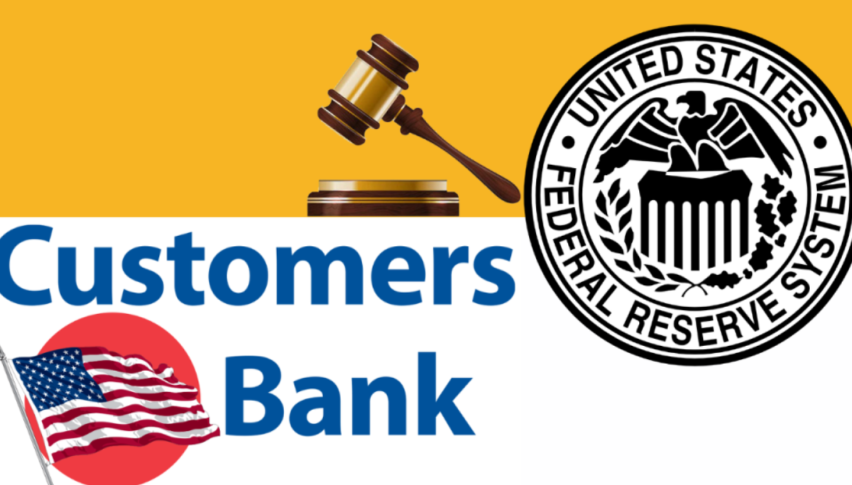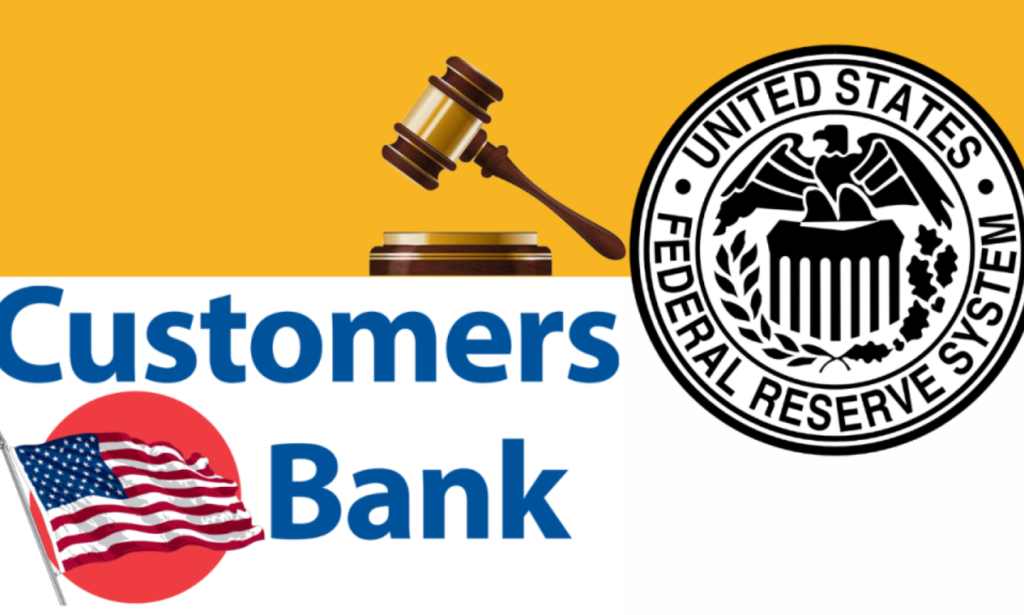Fed Action Against Customers Bank Highlights Challenges for Crypto Industry
The intersection of traditional finance and the burgeoning cryptocurrency industry faced another setback on August 8, when the Federal

The intersection of traditional finance and the burgeoning cryptocurrency industry faced another setback when the Federal Reserve issued a regulatory enforcement action against Customers Bank.

This Pennsylvania-based institution, one of the few remaining crypto-friendly banks in the United States, was served a 13-page order related to its digital asset and dollar token activities.
#Fed Action Against Customers Bank Underscores #Crypto’s Ongoing #Banking Challenges#financialservices #fintech #banks #payments #ecommerce #digitaltransformation #FintechLive #FTWLondon #Finovatehttps://t.co/H5qh5ypx06 pic.twitter.com/nhsUeFfwgz
— Saburai Consulting #FinTech #FinancialServices (@TonyMoroney3) August 13, 2024
The move underscores the ongoing challenges that Web3 businesses face in securing and maintaining crucial banking partnerships, even as they navigate a rapidly evolving financial landscape.
Key Points:
- Customers Bank Under Scrutiny: The Fed’s enforcement action cites “significant deficiencies” in Customers Bank’s compliance with Bank Secrecy Act (BSA)/Anti-Money Laundering (AML) and Office of Foreign Assets Control (OFAC) requirements.
- Impact on the Crypto Industry: The action could restrict Customers Bank’s ability to serve crypto firms, highlighting the challenges in balancing innovation with regulatory compliance.
- Fed’s Demands: Customers Bank must now provide 30 days’ written notice before engaging in new crypto-related initiatives and must improve risk management practices.
- Broader Industry Implications: The closure of Silvergate Bank and Signature Bank has left the crypto industry with limited banking partners, making Customers Bank’s situation even more critical.
The Shrinking Landscape of Crypto-Friendly Banks
The landscape for crypto-friendly banks in the U.S. has shrunk dramatically, particularly following the closures of Silvergate Bank and Signature Bank last spring.
In the wake of these closures, Customers Bank emerged as a key player, partnering with hundreds of crypto firms, including major exchanges and stablecoin issuers.
Digital assets now represent 15% of the bank’s deposit base. However, the Fed’s recent action places additional constraints on the bank, complicating its ability to support the crypto sector.
- Customer Bank’s Role: With 15% of its deposit base tied to digital assets, Customer Bank has become a crucial partner for the crypto industry, especially after the closure of other crypto-friendly banks.
- New Restrictions: The bank must enhance its risk management practices and give the Fed 30 days’ notice before launching new crypto-related initiatives.
Regulatory Compliance: The Elephant in the Room
The Fed’s action against Customers Bank highlights a persistent challenge in the crypto industry: regulatory compliance.
While cryptocurrencies are designed to function outside traditional financial systems, crypto businesses still rely on banks for essential services such as payments, custody, and liquidity management.
These banking relationships are critical in bridging the gap between decentralized digital assets and the structured world of finance.
- Winklevoss’s Response: Tyler Winklevoss, founder of the Gemini exchange, voiced concerns that the Fed is becoming a gatekeeper, potentially restricting crypto firms’ access to banking services.
- Regulatory Barriers: The lack of clear regulatory frameworks makes banks cautious in dealing with crypto firms, which are often perceived as high-risk due to concerns over money laundering and compliance.
Historical Context and Broader Implications
The enforcement action is not an isolated incident but part of a broader regulatory tightening around the crypto industry.
High-profile cases, such as the SEC’s investigation into Binance’s use of U.S. banks to move billions of dollars globally and Coinbase’s $4.5 million fine by a U.K. regulator, underscore the scrutiny the industry faces.
These actions reflect growing concerns among regulators about the potential for cryptocurrencies to be used in illicit activities.
- Binance and Banking Misconduct: Binance’s use of U.S. banks to transfer nearly $70 billion worldwide has drawn significant attention from regulators.
- Coinbase Fine: A U.K. regulator fined Coinbase for serving high-risk customers, further highlighting the global regulatory challenges facing crypto exchanges.
Operational and Technical Challenges
Beyond regulatory concerns, integrating crypto firms into traditional banking systems presents operational and technical challenges.
Many banks lack the necessary infrastructure to handle digital assets, and the costs associated with upgrading systems or training staff can be prohibitive.
The fast-paced nature of the crypto industry often clashes with the more methodical approach of traditional banks, leading to misalignments in expectations.
- Infrastructure Gaps: Banks need significant investment to upgrade their systems to accommodate digital assets.
- Cultural Clash: The crypto industry’s rapid pace often conflicts with the conservative, cautious approach of traditional financial institutions.
The Way Forward: Cross-Border Payments and Blockchain Innovation
Despite these challenges, PYMNTS Intelligence suggests that the potential for blockchain-based cross-border payments could offer a viable path forward for the crypto industry.
Stablecoins, in particular, are gaining traction as firms seek more efficient ways to transact and expand internationally. Moreover, blockchain technology presents numerous benefits for regulated industries, including finance, healthcare, and supply chain management.
- Cross-Border Payments: Stablecoins are increasingly seen as a solution for more efficient cross-border transactions.
- Blockchain Benefits: Beyond payments, blockchain has the potential to revolutionize industries like finance and healthcare by providing secure, transparent, and efficient solutions.
Conclusion: The Fed’s enforcement action against Customers Bank serves as a stark reminder of the complex and evolving challenges that crypto businesses face in navigating the traditional financial system. While the potential for innovation
- Check out our free forex signals
- Follow the top economic events on FX Leaders economic calendar
- Trade better, discover more Forex Trading Strategies
- Open a FREE Trading Account


